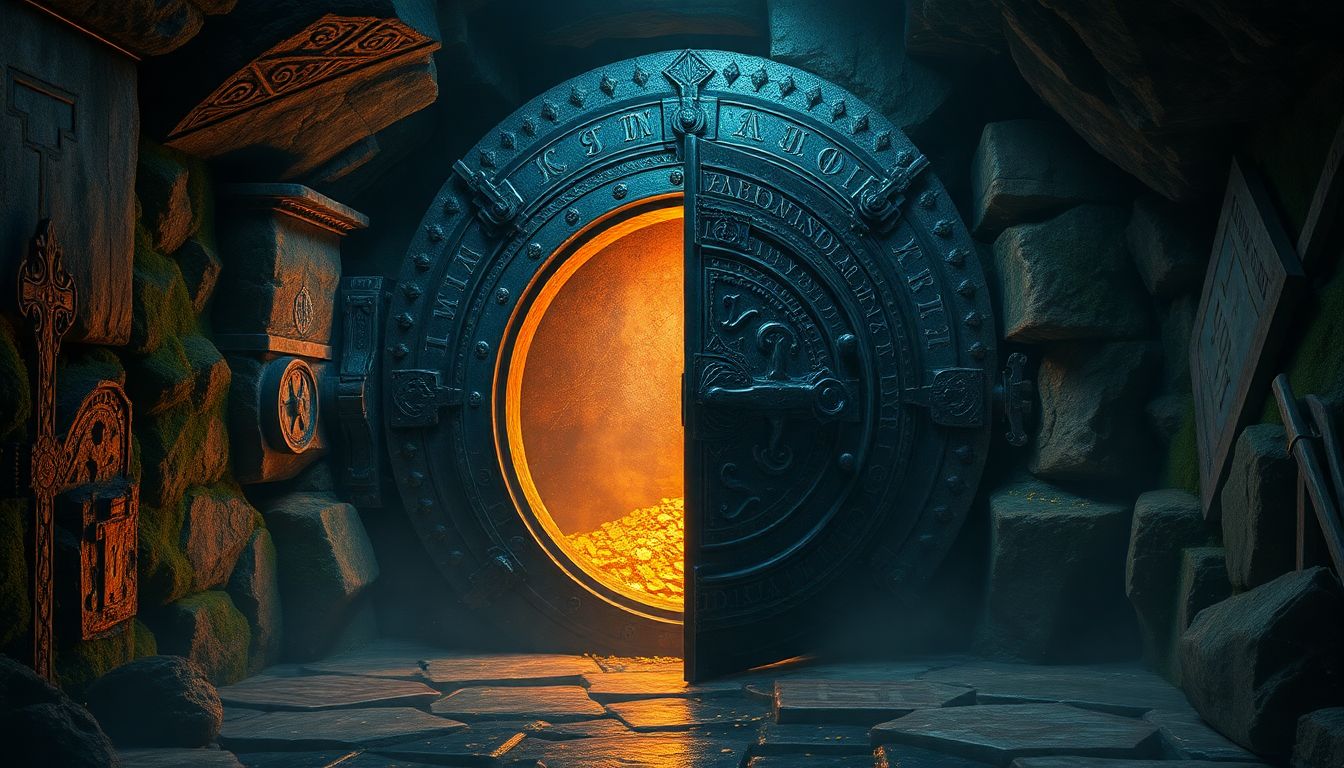
Vault Door: The Ultimate Guide to Security, Selection, and Installation
Introduction
Protecting your most valuable assets is more important than ever. From cash reserves to sensitive documents, a secure place is vital. Vault doors have become the go-to solution for anyone serious about security. Whether you own a bank, a jewelry store, or want to secure your home, a sturdy vault door adds an extra layer of protection. As threats grow more sophisticated, so do security solutions. This guide covers everything you need to know about vault doors—types, features, installation tips, and expert advice—to help you make the right choice.
Understanding Vault Doors: What Are They and Why Are They Essential?
Definition and Purpose of Vault Doors
A vault door is a heavy, reinforced door designed to keep valuables safe inside. Unlike regular safes, vault doors are part of a larger, high-security vault room. They are built to withstand forced entry, fire, and various forms of attack. Their primary purpose? Protect assets from theft, damage, or unauthorized access.
Importance of Security in Various Settings
Vault doors aren’t just for banks. Jewelry stores, government buildings, and even wealthy residences rely on them. As crime becomes smarter, access control must be tighter. Large-scale thefts or cyber-attacks often target data or assets stored online. But nothing beats the physical security of a steel vault door, especially in high-risk situations.
How Vault Doors Enhance Security
Vault doors provide unmatched strength and durability. Many are made from thick steel or composite materials that resist drilling, cutting, and even explosions. They act as the last line of defense when everything else fails. Studies show that high-quality vault doors can prevent up to 90% of break-ins if properly installed. They keep assets safe and give peace of mind.
Types of Vault Doors: Choosing the Right Security Solution
Classic Steel Vault Doors
These are the most common and cost-effective options. Made from thick steel, they’re built to last. You’ll see them in banks and large safes. They’re simple but tough. The flip side? They can be heavy and might not have the latest tech features.
Biometric and Electronic Vault Doors
These doors use fingerprint scans or retinal recognition for quick access. They often feature digital keypads or remote control options. Great for busy environments, they cut down waiting times. Plus, modern encryption makes hacking difficult. However, electronics can need upgrades or repairs.
Fire-Resistant Vault Doors
If your asset is sensitive documents or data, fire-resistant doors are a must. They use special materials that withstand high temperatures. Some are certified to resist fire for hours. Ideal for accountants, lawyers, or anyone storing critical papers alongside valuables.
Custom and High-Security Vault Doors
For unique needs, custom vault doors are worth considering. They often include anti-bomb or anti-drill features. Some can be blast-resistant or reinforced against forced entry. Perfect for military facilities or high-security government buildings.
Key Features and Security Standards of Vault Doors
Construction Materials and Reinforcements
The best vault doors use thick steel—usually ½ inch or more—and reinforced frames. Some include composite layers for added strength. Fireproof linings are also common to protect contents from heat. The more layers of material, the harder it is to breach.
Locking Mechanisms
Security isn’t just about the door’s strength. Locks matter too. Mechanical locks are reliable but can be slow. Electronic locks enable quick access but need power. Multi-layer locks like time-delay or multiple bolts boost security. They make forced entry much harder.
Certification and Compliance
Look for vault doors with official standards. UL ratings indicate fire and security levels. For example, UL 608 tests vault doors against burglary techniques. Certifications ensure you’re buying a product that meets industry safety standards. Always choose approved products for peace of mind.
Installation and Maintenance Best Practices
Proper Site Selection and Preparation
Choose a strong wall with solid concrete or brick. Walls should support the door’s weight. Proper ventilation prevents moisture buildup, which damages the door or contents. Trust professionals to ensure the installation is secure and compliant.
Maintenance and Regular Inspections
Regularly check for rust, wear, or misalignment. Test locking mechanisms periodically. Maintaining seals and hinges prevents problems down the line. Keeping your vault in top condition ensures long-lasting security.
Upgrading and Modernization Options
Technology advances fast. You might want to upgrade from mechanical to electronic locks or add biometric access. Regular upgrades keep your vault protected against new threats. Talk to security experts to get the latest in vault door tech.
Real-World Examples and Expert Insights
Case Study: Bank Vault Security Overhaul
One major bank replaced its old vault doors with steel and biometric models. The result? Faster access for authorized staff and a stronger barrier against theft. The upgrade also included better fire protection, safeguarding millions in cash and valuables.
Expert Quotes from Security Professionals
Security specialists agree that choosing the right vault door depends on your individual needs. “A good vault door should be rated by certified standards and installed by professionals,” says tech security expert John Lewis. “Never compromise on quality—your assets deserve the best protection.”
Actionable Tips for Choosing the Perfect Vault Door
- Conduct a full security assessment before shopping.
- Always choose products with proper UL or industry certifications.
- Work with professional installers for best results.
- Think about future upgrades—modern locks or biometric features can add value later.
- Consider the location, size, and specific threats you’re facing.
Conclusion
Vault doors play a vital role in safeguarding assets against theft, damage, and intrusion. Picking the right type depends on your specific security needs, whether it’s fire resistance, high-tech access, or blast protection. Regular maintenance and staying updated with the latest tech keep your valuables safe long-term. Consult security experts to find the perfect vault door for your home or business. Remember, true security starts with the right protection—don’t take shortcuts.
